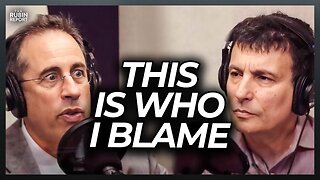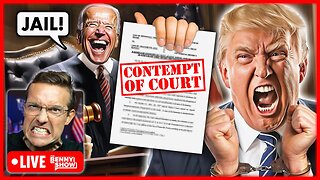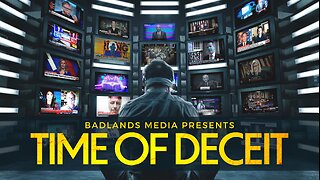The Philosophy of Hegel & Marx - Bryan Magee & Peter Singer (1987)
Peter Singer discusses the thought of Hegel and Marx with Bryan Magee in this 1987 television series on the Great Philosophers. Hegel was an important and influential 19th century German philosopher, best known for his dialectic, absolute idealism, and historicism, among various other things. The Hegelian dialectic is the process in which everything changes, based on the triad: thesis-antithesis-synthesis. Hegel's idealism rejected the Kantian notion of the thing-in-itself and instead embraced a monistic vision of the world in which everything forms an organic, interconnected, rational whole. Nothing is true or real except the whole. Not only a thinker of totality, Hegel was a historicist thinker who rejected the notion that ideas are static and fixed (e.g. the concepts of human nature and morality, as well as the concept of reason itself). Things can only be understood by understanding their historical context, which, for Hegel, is a process which changes and develops, having an underlying meaning or significance. So not only is there history in reason, but there is reason in history. For Hegel, history progresses towards its endpoint of ever greater freedom, driven by constant conflict and struggle for such freedom via the dialectical process. Like Hegel, Marx also was an influential German thinker. As a young or left Hegelian, he adopted much of Hegel's system, but substituted a kind of materialism for Hegel's idealism. This meant that rather than ideas underlying everything and driving historical change, it was the material and economic conditions which determine one's ideas, culture, and historical development. (My Description)
#Hegel #Marx #Marx #BryanMagee
-
 1:57:09
1:57:09
Tate Speech by Andrew Tate
1 day agoCIGAR NIGHT Q&A WITH TRISTAN TATE | EP.13
47.4K45 -
 LIVE
LIVE
TheAlecLaceShow
4 hours agoGuests: Riley Gaines | Steve Cortes | Protecting Women | DeSantis Backs Trump | The Alec Lace Show
482 watching -
 59:05
59:05
The Dan Bongino Show
4 hours agoCampus Nazis Run Wild As Biden Cowers (Ep. 2240) - 04/30/2024
372K995 -
 2:28:31
2:28:31
Mostly Sports With Mark Titus and Brandon Walker
20 hours agoMostly Sports With Mark Titus and Brandon Walker Presented by Jägermeister | EP 157 | 4.30.24
11.2K1 -
 50:55
50:55
The Rubin Report
3 hours agoHost Goes Quiet as His Question for Jerry Seinfeld Blows Up in His Face
49.8K49 -
LIVE
jeffahern
3 hours agoTrending Tuesdays with Jeff Ahern (9am Pacific)
390 watching -
 1:21:54
1:21:54
Trumpet Daily
2 hours agoTrumpet Daily | Apr. 30, 2024
17.2K1 -
 1:41:28
1:41:28
The Shannon Joy Show
4 hours ago🔥🔥The Attempted Color Revolution Comes To College Campuses Across America. Don’t Play.🔥🔥
16.6K17 -
 1:24:34
1:24:34
Benny Johnson
3 hours ago🚨 Judge Finds Trump In CONTEMPT, Prison?! TRUMP Speaking LIVE Right NOW: 'I Will Run From JAIL'
67.7K108 -
 1:30:38
1:30:38
Badlands Media
1 day agoTIME OF DECEIT (Full Documentary)
39.6K35